Supreme Court To Take Up Double Jeopardy “Separate Sovereigns” Exception
Next term, the Justices will revisit the issue of whether someone can be tried in state and Federal Court for the same crime for the first time in nearly sixty years.
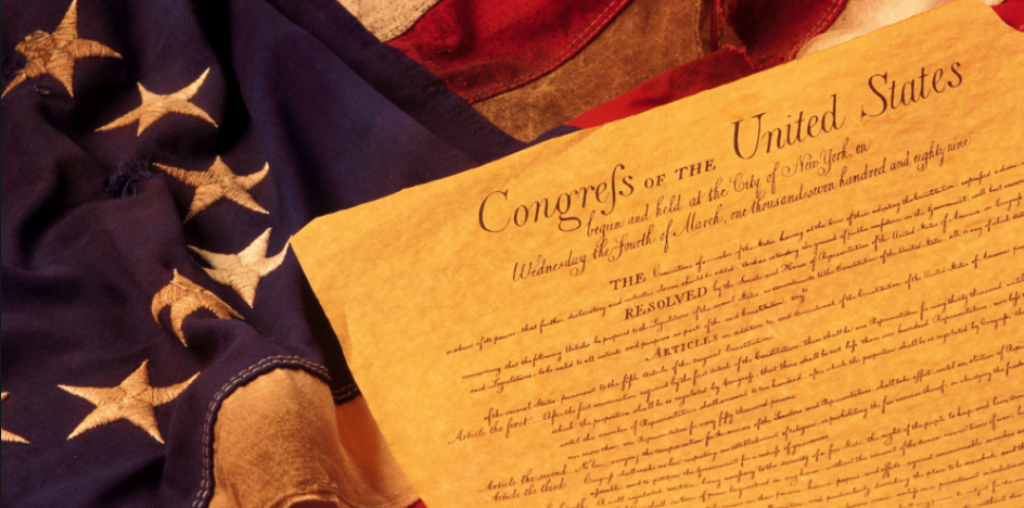
Before it left town last week, the Supreme Court agreed to take up a case dealing with the Fifth Amendment’s Double Jeopardy Clause and the question of when someone can be charged for the same crime under the Federal and State law:
WASHINGTON — The U.S. Supreme Court agreed Thursday to reconsider its long-standing view that putting someone on trial more than once for the same crime does not violate the Constitution’s protection against double jeopardy.
Among the provisions of the Fifth Amendment is that no person shall be “subject for the same offence to be twice put in jeopardy of life or limb.” That’s popularly understood to mean that nobody can be put on trial twice for the same crime.
But in a line of cases stretching back more than 150 years, the Supreme Court has ruled that being prosecuted twice — once by a state and again in federal court — doesn’t violate the clause because the states and the federal government are “separate sovereigns.”
The court has held that when a defendant in a single act breaks both a federal and a state law, that amounts to two distinct offenses and can result in two separate prosecutions. Barring states from prosecuting someone already tried in federal court “would be a shocking and untoward deprivation of the historic right and obligation of the states to maintain peace and order within their confines,” the court has said.
Lawyers for an Alabama man, Terance Gamble, urged the justices to consider overturning those earlier decisions.
Convicted of robbery in 2008, Gamble was pulled over seven years later for a traffic violation. Police found a handgun in his car, so he was charged with violating Alabama’s law barring felons from possessing firearms. The local U.S. attorney charged him with violating a similar federal law. Because of the added federal conviction, his prison sentence was extended by three years.
Gamble’s lawyers said the foundations for those earlier rulings began to crumble in 1969 when the Supreme Court ruled that the double jeopardy provision, originally meant to be a check on federal power, also applied to the states. It is inconsistent, they said, to let parallel actions of state and federal officials produce a result that would be impermissible if done by either jurisdiction alone.
The Double Jeopardy Clause seems pretty straightforward. It says “nor shall any person be subject for the same offence to be twice put in jeopardy of life or limb.” By its text, the meaning of this provision of the Constitution seems pretty straightforward. It basically says that a person cannot be tried twice on the same set of facts for the same offense. This means, for example, that a prosecutor cannot obtain an indictment for murder against a person and if they fail to convict on that charge, turn around and reindict the same person for manslaughter or some other form of homicide. It also limits the extent to which a prosecutor can bring multiple unrelated charges against the same Defendant after they’ve been acquitted of the underlying offense. There are exceptions to the rule, but they are generally limited and extremely hard for prosecutors to obtain absent compelling evidence, such as evidence of a fraud on the court such as jury tampering or some other action that essentially made the first trial a fraud. The most common exception, of course, is in a case that ends in a mistrial due to a hung jury or some other circumstances that prevented the trial from coming to a final verdict. In those cases, the prosecution is generally permitted to retry a Defendant on the same, or additional, charges unless it can be established that the mistrial was due to prosecutorial misconduct of some kind. As a general rule, though, the Double Jeopardy Clause stands for the proposition that prosecutors only get one “bite at the apple,” and if they’re unable to prove guilt beyond a reasonable doubt then they can’t turn around and retry the Defendant again, even if they obtain evidence after the trial that clearly indicates the Defendant’s guilt. It also applies to Defendants who have been convicted of a crime under a specific set of facts and bars prosecutors from attempting to retry the case under more serious charges to increase the punishment the Defendant received.
The one major exception to this rule has been what has come to be called the “separate sovereign” rule, which essentially allows a Defendant to be tried under the same set of facts in both state and Federal court even if he has already been acquitted on the charges in one jurisdiction. This rule was established by the Supreme Court in a 1959 case called Abbate v. United States 359 U.S. 187 (1959), although it was actually first stated by the Court 37 years earlier in a case called United States v. Lanza 260 U.S. 377 (1922). In Lanza, a case which arose during the Prohibition era, a Defendant was prosecuted and convicted of making, transporting, and selling intoxicating liquors in violation of Washington state law. He was subsequently charged with violating the National Prohibition Act under the same set of facts. The Supreme Court ruled in that case that this subsequent Federal prosecution did not violate the Double Jeopardy clause essentially because the states and the Federal Government are separate entities and that prosecution by one does not rule out prosecution based on the same set of facts by the second. In Abbate, the Defendant was “part of [a] conspiracy to blow up multiple facilities owned by the Southern Bell Telephone Company. He was convicted in Illinois under a state law making it a crime to conspire to destroy the property of another and sentenced to three months of imprisonment. Thereafter, Abbate was indicted in [a] federal district court for a violation of federal law stemming from the same conspiracy.” (Source) Abbate’s attorney asked the Court to reconsider the ruling in Lanza that had established the dual sovereign doctrine, but the Court declined to do so.
The mere fact that the Supreme Court chose to take this case up is interesting in and of itself. It’s been nearly sixty years since the Abbate ruling was handed down, and it doesn’t appear that the Justices have reviewed the issues raised by that case in the intervening years. Even though it only takes four Justices voting in the affirmative for a case to be accepted for review, the fact that there were four votes to accept the case is interesting since it presents the question of whether or not there might be a majority on the Court who think the time has come to review the holdings in Lanza and Abbate given the fact that Federal law has vastly expanded over the past sixty years. When Lanza was handed down 96 years ago, and even when Abbate was handed down 37 years later, the Federal criminal code was relatively sparse and consisted largely of crimes that were committed on Federal property, against Federal officials, involved violations of exclusively Federal law such as the Internal Revenue Code, or other Federal laws. In the years since Abbate, though, the criminal law sections of the United States Code have expanded vastly and encompasses a whole host of areas, many of which are also covered by Federal law. Because of this, the exception to the Double Jeopardy Clause that was created by Lanza and Abbate goes too far and is no longer appropriate.
Today, the most common situation we see the “Separate Sovereigns” rule come into play in a way that makes the news are in high profile cases that involve civil rights issues. The best-known example of this, of course, is the Rodney King case where a group of Los Angeles Police Officers who had been acquitted on state charges in a trial resulting from the beating King received after a late-night traffic stop and later charged and convicted under Federal civil rights charges for the same offense. We’ve also seen this issue arise in several recent cases of national note, such as those involving George Zimmermann’s shooting of Trayvon Martin, the Michael Brown case, and the case of Dylann Roof, the man who shot and killed nine people inside a historically African-American church in Charleston, South Carolina.
While all of these cases involve horrid acts and distasteful people, the fact that they end up getting subjected to prosecution twice for the same crime seems off somehow. While it’s true that the Federal and state governments are separate entities, the fact that the Defendant is being tried twice for the same crime is inescapable and seems unfair at some level. At the very least, as I noted above, the fact that the Federal criminal code has expanded so much in the past sixty years suggests strongly that this exception to the Double Jeopardy Clause needs to be reexamined. It will be interesting to see how the Court handles this matter.
This case is likely to be heard at some point early in the Court’s upcoming October 2018 term, probably before the end of 2018, in the meantime, you can read the previous history of the Gamble case at the SCOTUSBlog information page for the case. I’ve also embedded the 11th Circuit opinion in the case below. It’s relatively short, but it includes a discussion of the relevant Federal law on this issue which, at least for now, means that Gamble could be charged under both Federal and state law for the same crime.
Gamble v. United States by Doug Mataconis on Scribd

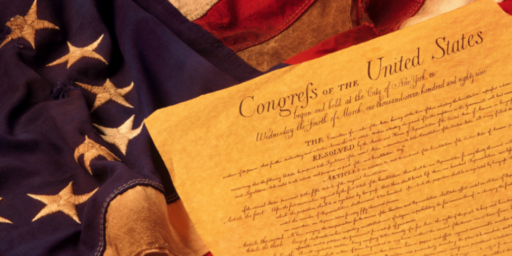
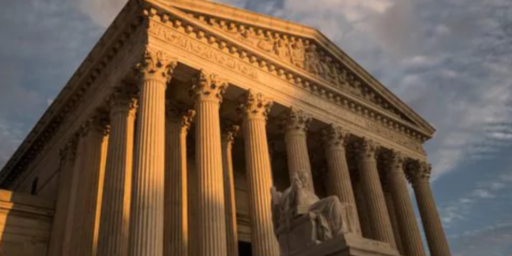

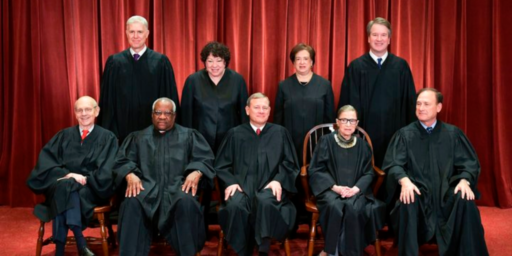
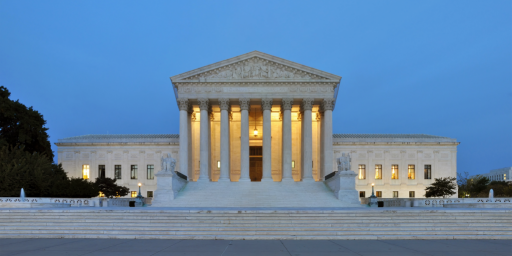
With Dennison’s former campaign chair facing charges in separate sovereigns…and his personal attorney very likely to in the near future…it’s not surprising in the least.
It is a little surprising you didn’t mention that, though.
@Daryl and his brother Darryl:
Maybe because it’s completely irrelevant, you clown?
Holy crap, you people are sick.
Screw the Constitution as long as you get what you want: A Nation of Men instead of a Nation of Laws.
@TMzero
Please explain how is it irrelevant?
The fact is that Dennison’s campaign chair, and his personal fixer, are out of the reach of his pardon because of this. Were the SCOTUS to be the activists they have been this term, and overturn this, he could pardon them and they wouldn’t be able to be tried in Virginia or, in the case of Cohen, SDNY. As the law currently stands he cannot help them.
Holy psychological projection, Batman.
I would like to point out that, in theory, this has been settled law for 60 years. Roe vs Wade is on the chopping block, no matter what Snow and Graham insist .
@Daryl and his brother Darryl:
That’s true. But couldn’t these people be tried first in state court?
@Daryl and his brother Darryl:
It’s not relevant, as far as I can tell. The charges that Cohen faces with feds and state are different charges so there would not be a double jeopardy issue. What the Court is taking up is the idea that, if you fail to convict someone in state court, you can then go to the federal court and charge them for the same crime. This rule has been abused by the Feds for years and I think it’s high time some limitation was put on it.
Would like to see our resident lawyers weigh in on this, of course.
@Hal_10000:
I’ll buy that for Cohen…but not for Manafort and Flynn.
But IANAL.
I’ll defer to others, as you say.
@Hal_10000: The brief description of the facts of the case above and at the link are a bit unclear, but it appears he was convicted on both the state and federal charges, not found innocent of anything.
While I agree in principle that this separate sovereigns thing seems to violate double jeopardy, we have a long history of state and local courts being unreliable where civil rights are involved.
CBS News is reporting that Trump has narrowed his choices for the SC to Kavanaugh and Barrett.
After 35 years of climbing telephone poles I had to check this out. The first thing I said to myself: “I’ll bet the phone company was on strike.”
How did I know?!?
I have worked storm damage that ripped apart cities but repairing strike damage was the nastiest job of all.
@Mister Bluster:
Nooooo!
Unions are such peaceful organizations!
They’d never destroy property or bite off people’s fingers at tea party rallies!
That damage must have been the result of Dennison’s racist white nationalist supporters dressed up as union men!
The contractor who rehabbed my house likes to hook in “support” of guys on strike and then drive by flipping them the bird as they start waving thanks at him. LOL
(You know, the finger.)
@Daryl and his brother Darryl:
Oh sure.
Now the docile little pansy comes out.
@CSK:
Awesome.
Let’s see Feinstein and Sack of Durbin bring out their religious test for office again.
That would be SO kewl!
Screw the Constitution as long as you get what you want: A Nation of Men instead of a Nation of Laws.
It’s clear that you want a nation of small handed men who molest women at every opportunity “…you can grab them by the pussy…” and piss on their marriage vows by screwing porn stars.
For your fealty TrueMunchkin 0.1 you will receive the coveted …his people sit up at attention. I want my people to do the same. award to attach to your jutting chest as you stand in review of Supreme Leader and Chairman of the REPUBLICAN Sex Workers Party, Kim Jong Trump’s any day now Pompous Parade.
…Dennison’s racist white nationalist supporters…
You mean like this Trump supporting goon dressed like a jailbird after killing Heather Heyer, a 32-year-old paralegal, and injuring 19 others.
@TM01: Make an argument instead of name calling. You look juvenile when you name call.
@ddennis: ha-ha.
You must be new here.
That’s all people do here.
Unfortunately that means stooping to their level at times.
Now there’s a great defense…”I know you are but what am I” may work on the playground but it won’t work here…